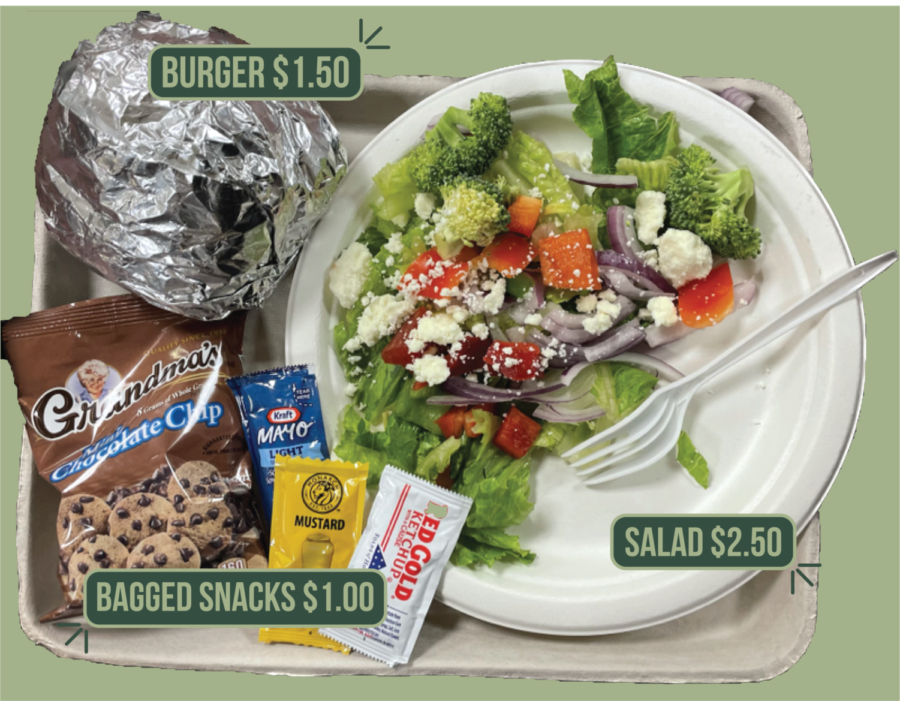By Tanisha Agrawal, Staff Reporter
As a new school year ramps up, some students are trying to adjust to what had been a key part of their day last year: free school breakfast and lunch, regardless of their household’s income.
On June 30, the federal Universal School Lunch Act, a program that provided all students with free meals during the COVID-19 pandemic, expired, leaving millions of families scrambling to apply for other available programs. Some looked to the National School Lunch Program, which provides balanced, low-cost meals to children in need.
Families earning less than 130% of the federal poverty line can apply for free school lunches. Families earning 130-185% of the poverty line can apply for reduced lunch. Currently, the federal poverty line for a household of four is an annual income of $26,500 or less. However, those who barely miss the criteria are back to paying full, pre-pandemic prices. At T/E schools, this is $2.75-3.75 for breakfast and $4-5.25 for lunch.
“I feel bad for the kids that cannot afford to pay. I wish that everybody could eat for free. If I had it my way that’s how it would be,” said Louise Gardener, a cafeteria worker at Conestoga.
Families who barely miss the qualifications for free meals by federal programs have other options within the school district. T/E’s School Meal Assistance Program, for example, delivers a set amount of money to a student’s lunch account and is refilled upon request.
“If T/E offers free or reduced lunch to someone, we promise to keep it confidential. Nobody except the administration has access to how much a student pays. Twenty years ago everyone had color-coded tickets, which led to discrimination, and we stand against that now,” said David Preston, the T/E food and nutrition department supervisor.
In September, Pennsylvania Governor Tom Wolf unveiled the Universal Free Breakfast Program, set to serve 1.7 million students free breakfast. Even though many applauded this initiative, it is essential to note that it only accommodates school breakfasts. Additionally, the program is set to expire in 2023, prone to reopen the debate on free versus paid meals for all public school students.
Tanisha Agrawal can be reached at [email protected]






















































































